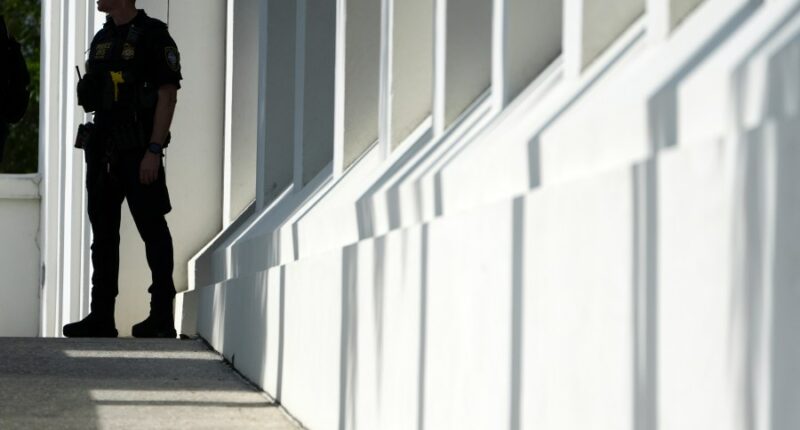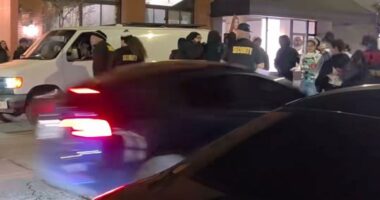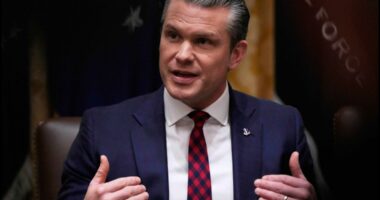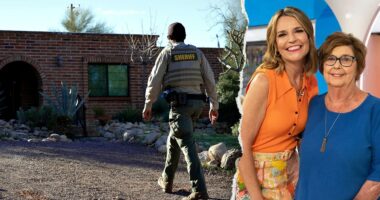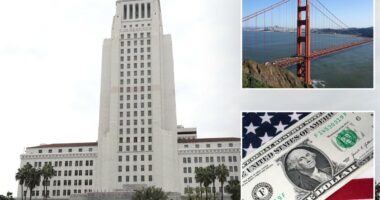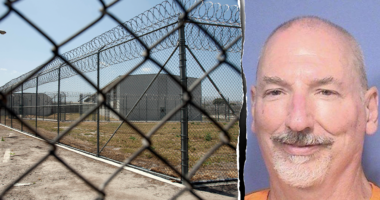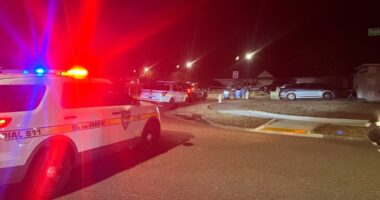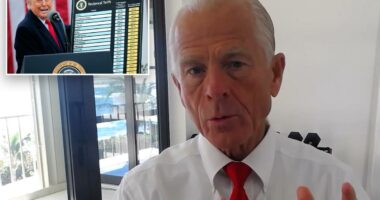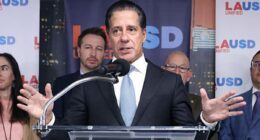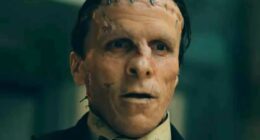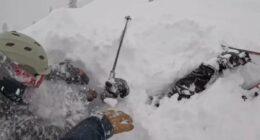Share this @internewscast.com

FORT PIERCE, Fla. (AP) — On trial for allegedly attempting to assassinate President Donald Trump last year at his Florida golf resort, a man chose not to testify in his own defense on Monday. Representing himself, he concluded his case by questioning a firearms expert and two witnesses who testified to his character.
Ryan Routh concluded his defense before lunchtime after questioning witnesses for three hours in the morning. When U.S. District Judge Aileen Cannon inquired if Routh wanted to testify, he declined. Closing arguments are expected to happen on Tuesday.
According to prosecutors, Routh had spent weeks planning to assassinate Trump and aimed a rifle through bushes as Trump played golf on September 15, 2024, at Mar-a-Lago in West Palm Beach. A Secret Service agent witnessed Routh before Trump appeared. Routh pointed his firearm at the agent, prompting the agent to shoot, making Routh drop his weapon and run away without firing a shot, the agent stated.
During Routh’s questioning on Monday, firearms expert Michael McClay confirmed that Routh could have had a clear view of the sixth green from the spot where he was concealed in the bushes. McClay, who tested Routh’s weapon for the trial, was allowed to fire two shots during testing. He noted, however, that the weapon jammed on the second attempt, indicating that Routh may have been unable to fire multiple shots.
McClay also testified that a scope found at the scene had been mounted to the firearm by tape and glue, which likely would have made it ineffective.
The two character witnesses, Routh’s former employee and a friend of his son, testified that Routh is a non-violent individual. However, both admitted during cross-examination that they had not interacted with him in years.
Routh has entered a plea of not guilty to charges including the attempted assassination of a major presidential candidate, assaulting a federal officer, and several firearm-related offenses.
Prosecutors with the U.S. Attorney’s Office for the Southern District of Florida rested their case Friday afternoon after spending seven days questioning 38 witnesses in an attempt to make sure Routh spends the rest of his life in prison.
Cannon signed off on Routh’s request to represent himself following two hearings in July. Routh told the judge that his court-appointed federal public defenders were diligent, but they didn’t listen to him and were afraid of him.
“How are they supposed to represent me and say I’m not a dangerous person when they don’t believe that?” Routh said in July.
The U.S. Supreme Court has held that criminal defendants have a right to represent themselves in court proceedings, as long as they can show a judge they are competent to waive their right to be defended by an attorney. Routh’s former defense attorneys have served as standby counsel since Routh took over his own defense and have been present during trial the past two weeks.
Cannon said attorneys should be prepared to deliver their closing arguments Tuesday, giving each side one hour and 45 minutes. Jurors will begin deliberating after that. Cannon had initially blocked off more than three weeks for the trial at the Fort Pierce federal courthouse, but Routh’s relatively short cross-examinations and defense presentation have led to a quicker pace than anticipated.
Just nine weeks before the golf course attempt, Trump had survived an attempt on his life while campaigning in Pennsylvania. That gunman had fired eight shots, with one bullet grazing Trump’s ear. The gunman was then fatally shot by a Secret Service counter sniper.
Routh was a North Carolina construction worker who in recent years had moved to Hawaii. A self-styled mercenary leader, Routh spoke out to anyone who would listen about his dangerous, sometimes violent plans to insert himself into conflicts around the world, witnesses have told The Associated Press.
In the early days of the war in Ukraine, Routh tried to recruit soldiers from Afghanistan, Moldova and Taiwan to fight the Russians. In his native Greensboro, North Carolina, he was arrested in 2002 for eluding a traffic stop and barricading himself from officers with a fully automatic machine gun and a “weapon of mass destruction,” which turned out to be an explosive with a 10-inch (25-centimeter) fuse, police said.
In 2010, police searched a warehouse Routh owned and found more than 100 stolen items, from power tools and building supplies to kayaks and spa tubs. In both felony cases, judges gave Routh either probation or a suspended sentence.
In addition to the federal charges, Routh also has pleaded not guilty to state charges of terrorism and attempted murder.
